- Eyes
- Moderate size, diameter 34% of head width.
- Moderate size, diameter 34% of head width.
- Funnel
- Funnel organ V-shaped.
- Funnel organ V-shaped.
- Fins
- Long, fin span 59% of total length, 114% of head width.
- Anterior margin with distinct lobe.
- Gills
- Half-orange shape but with fine lamellae.
- 7-8 primary lamellae/gill.
- Optic lobes and nerves
- Optic lobes spherical.
- Single optic nerve bundle passes through/by white body.
- Digestive tract
- Radula present, poorly developed, homodont.
- Small anterior salivary glands on buccal mass; posterior salivary glands absent.
- Esophagus two times length of intestine.
- Digestive gland unilobular.
- Beaks
- Lower beak with rounded hood; wing with diagonal flexure, lateral walls without ridges or folds.
- Male reproductive tract
- Accessory gland II small.
- Penis long.
- Female reproductive tract
- Distal portion of oviducal gland green-brown; smaller proximal portion cream color.
- Pigmentation
- Entire digestive tract deeply pigmented.
- Skin reddish-brown in preservation.
- Pigmentation greater on oral and aboral surfaces of arms than on mantle.
- Posterior margins of fins with purple color.
- Measurements
Grimpoteuthis challengeri: Description Continued
Martin Collins, Richard E. Young, and Michael VecchioneReferences
Collins, M. A. 2003. The genus Grimpoteuthis (Octopoda: Grimpoteuthidae) in the North-east Atlantic, with descriptions of three new species. Zool. Journ. Linnean Soc., 139: 93-127.
About This Page
Martin Collins

Aberdeen University, Aberdeen, UK

University of Hawaii, Honolulu, HI, USA

National Museum of Natural History, Washington, D. C. , USA
Page copyright © 2003 Martin Collins, , and
All Rights Reserved.

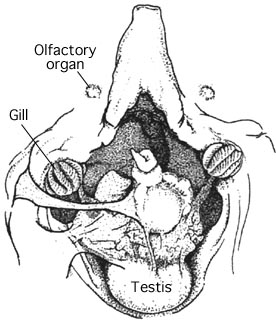
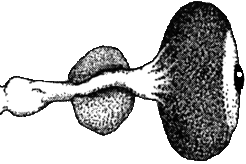
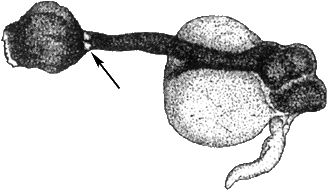
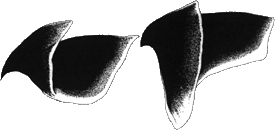
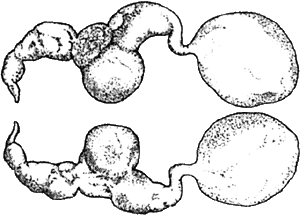



 Go to quick links
Go to quick search
Go to navigation for this section of the ToL site
Go to detailed links for the ToL site
Go to quick links
Go to quick search
Go to navigation for this section of the ToL site
Go to detailed links for the ToL site